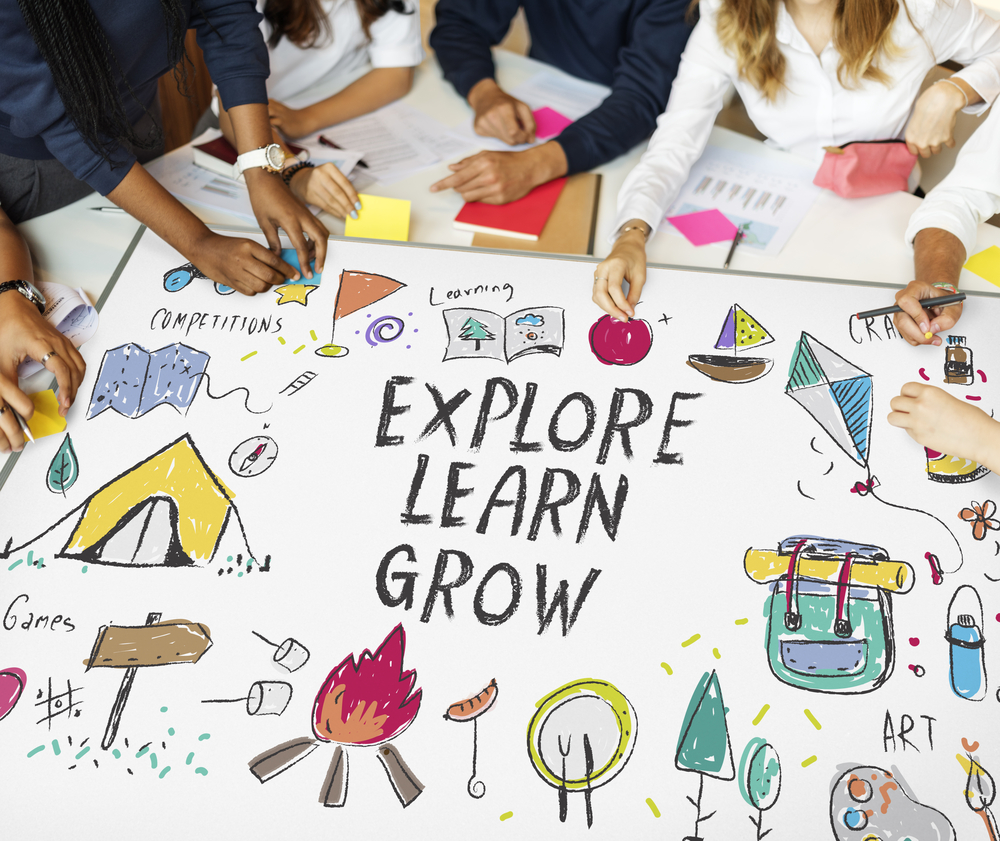Geography knowledge Normal Math Worksheets for Ages 3-9
6 filtered results
-
From - To
Explore our engaging Geography Knowledge Normal Math Worksheets designed specifically for children ages 3-9! These worksheets seamlessly integrate geography with essential math skills, making learning an enjoyable experience. Your little ones will discover essential concepts such as map reading, understanding landforms, and recognizing global landmarks—all while practicing math in a fun, interactive way. Each worksheet is crafted to cater to various learning levels, ensuring that children can progress at their own pace. Perfect for home study or classroom use, our resources foster curiosity about the world while solidifying foundational math concepts. Start the adventure today and enhance your child's learning journey!
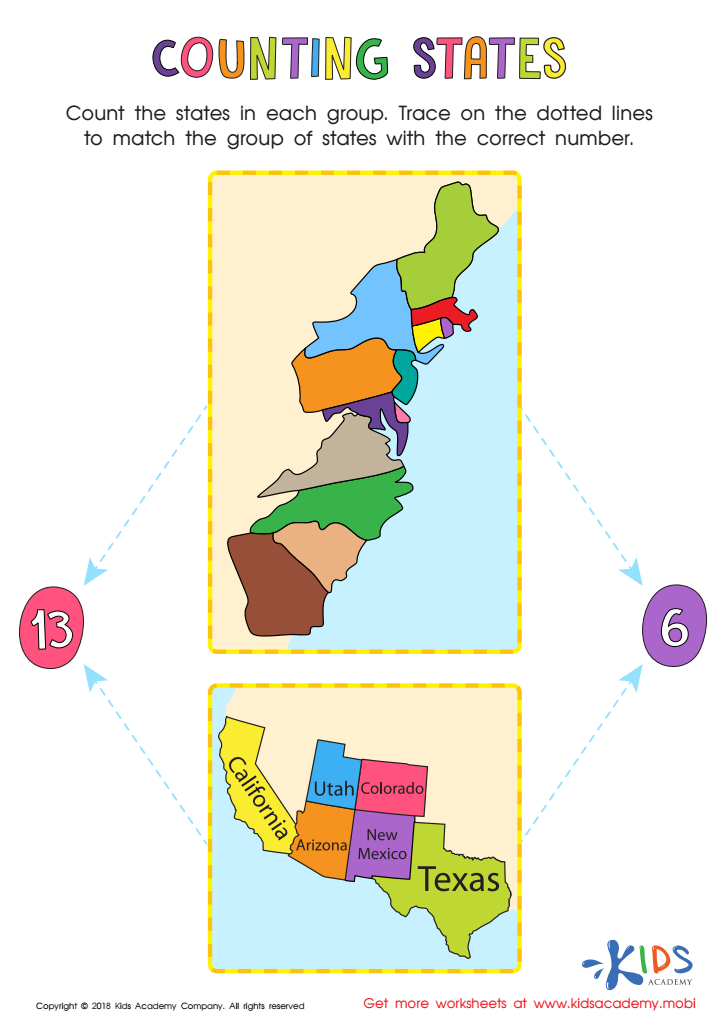

Counting States Worksheet
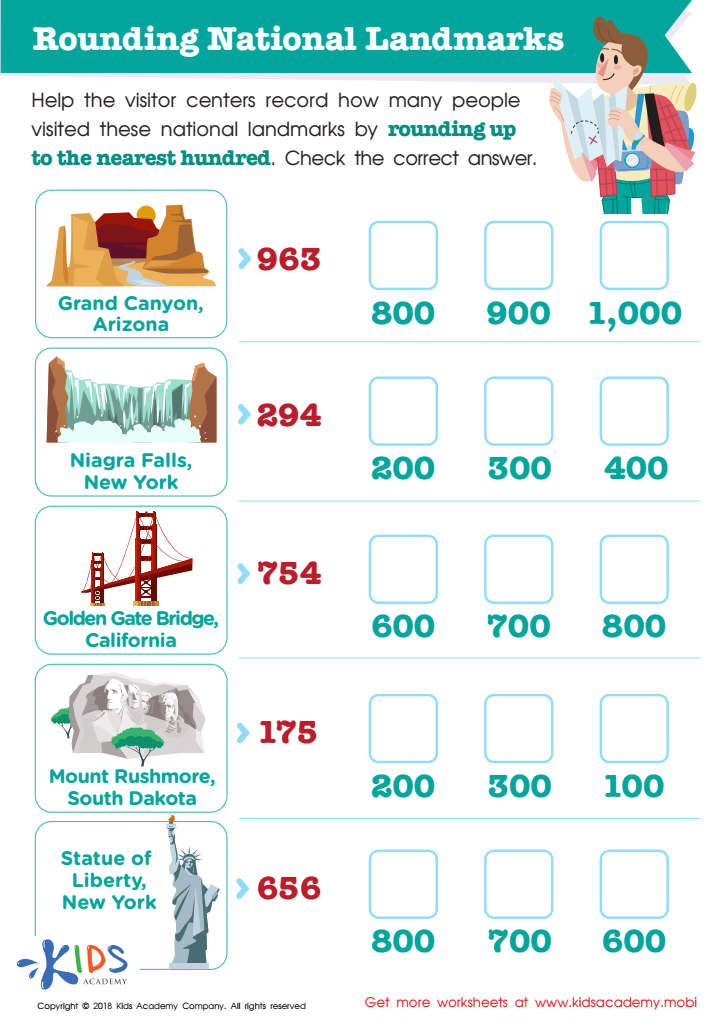

Rounding National Landmarks Worksheet
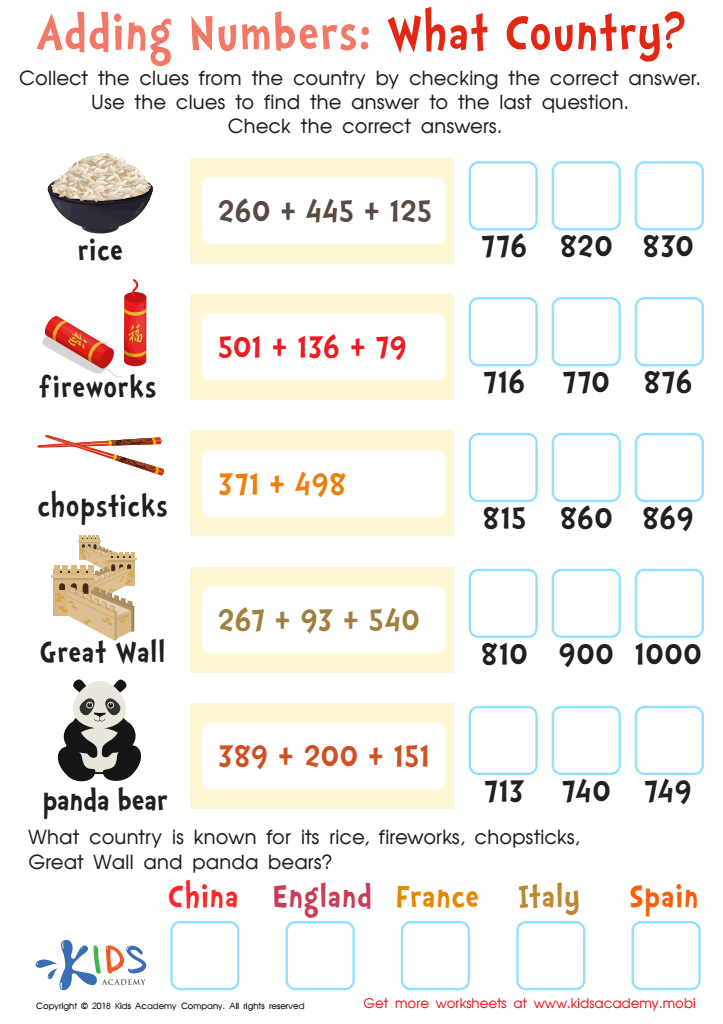

Adding Numbers: What Country Worksheet
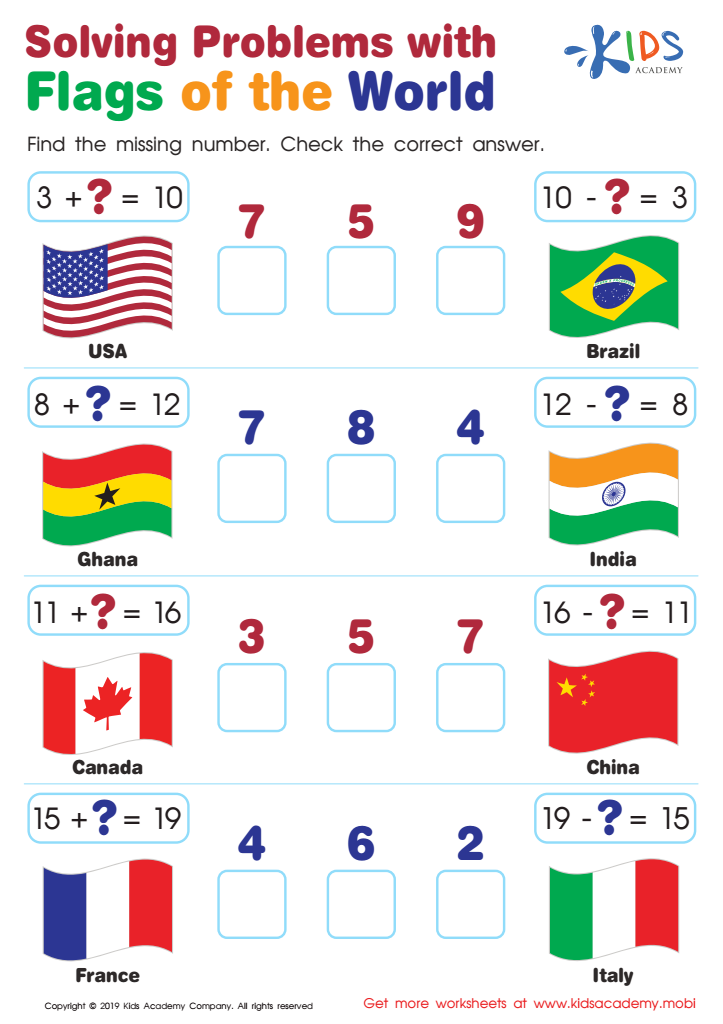

Solving Problems with Flags of the World Worksheet
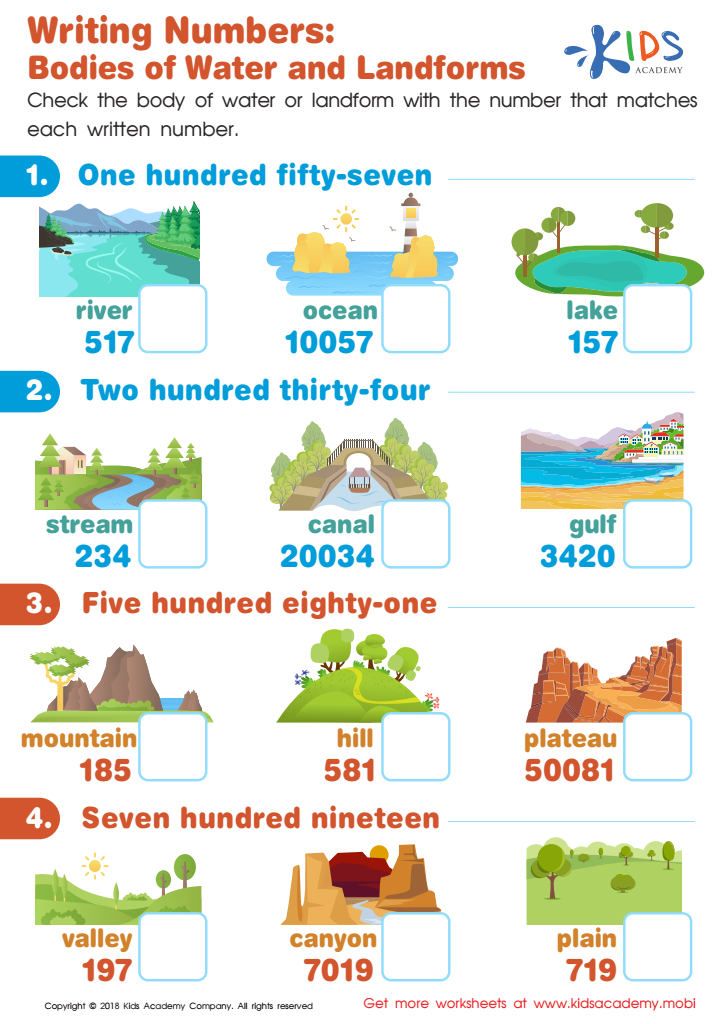

Bodies of Water and Landforms Writing Numbers Worksheet
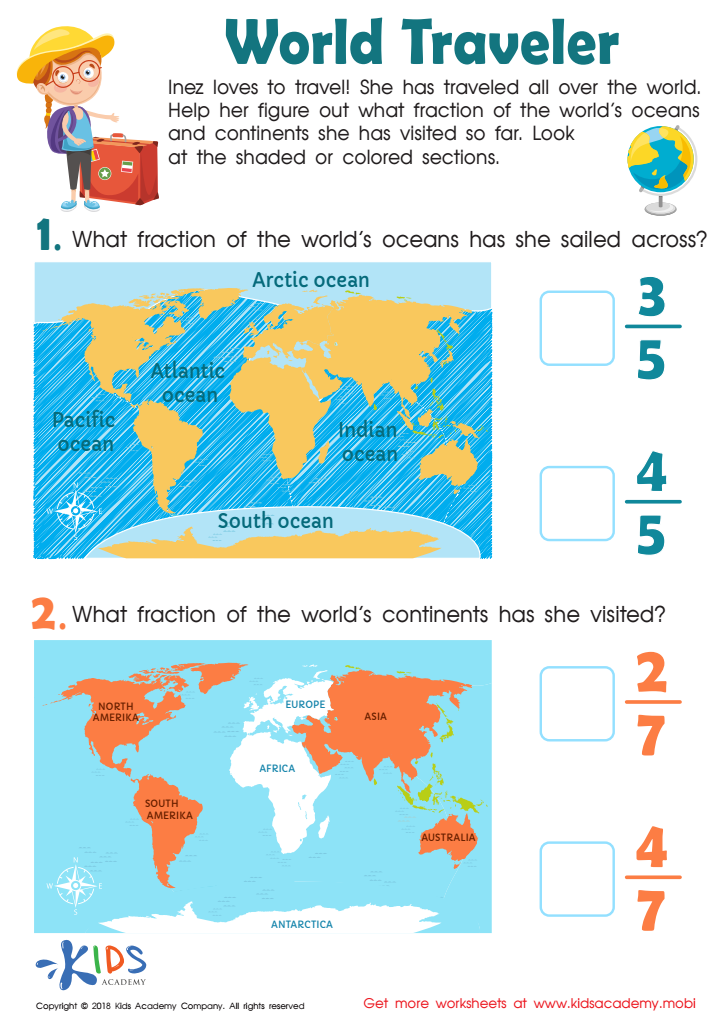

World Traveler Worksheet
Geography knowledge is crucial for children aged 3-9 as it lays the foundation for their understanding of the world around them. At this age, children are naturally curious and eager to explore. Introducing them to geography enriches their cognitive development, enhances their spatial awareness, and fosters critical thinking skills. Awareness of different cultures, landforms, and ecosystems broadens their perspectives, promoting empathy and respect for diversity.
Additionally, geography ties closely with ordinary math skills. Understanding basic concepts, such as distance, scales on maps, and interpreting data through charts, can enhance mathematical proficiency. For instance, measuring distances between landmarks or recognizing patterns in geographical data can make learning math more engaging and relevant.
Moreover, learning geography improves language skills as children articulate their thoughts and questions about places and cultures. These early lessons also create opportunities for hands-on learning experiences, such as field trips or map-making, that blend play with education.
Overall, geography knowledge in young children is essential, as it cultivates curiosity, enhances critical thinking, and promotes important math skills—all vital for their intellectual and social development. Parents and teachers should prioritize geography to equip children with a well-rounded understanding of their environment and the world.
 Assign to My Students
Assign to My Students





